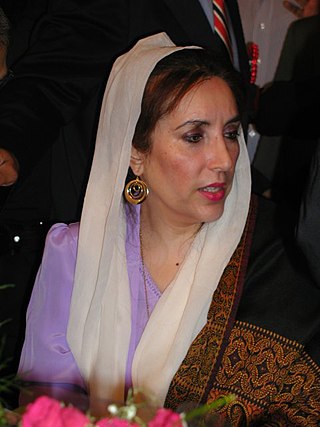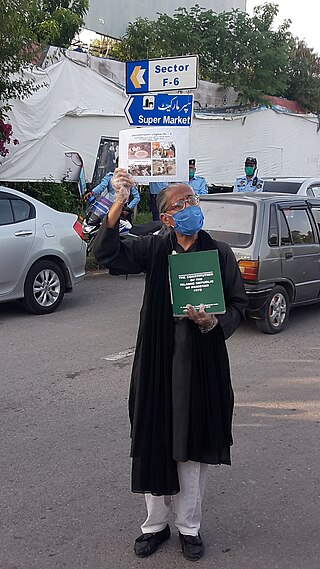
Sexual harassment is a type of harassment involving the use of explicit or implicit sexual overtones, including the unwelcome and inappropriate promises of rewards in exchange for sexual favors. Sexual harassment can be physical and/or a demand or request for sexual favors, making sexually colored remarks, showing pornography, and any other unwelcome physical, verbal, or non-verbal conduct of a sexual nature. Sexual harassment includes a range of actions from verbal transgressions to sexual abuse or assault. Harassment can occur in many different social settings such as the workplace, the home, school, or religious institutions. Harassers or victims can be of any gender.
Some victims of rape or other sexual violence incidents are male. Historically, rape was thought to be, and defined as, a crime committed solely against females. This belief is still held in some parts of the world, but rape of males is now commonly criminalized and has been subject to more discussion than in the past.
Sexual violence is any harmful or unwanted sexual act—or attempt to obtain a sexual act through violence or coercion—or an act directed against a person's sexuality without their consent, by any individual regardless of their relationship to the victim. This includes forced engagement in sexual acts, attempted or completed, and may be physical, psychological, or verbal. It occurs in times of peace and armed conflict situations, is widespread, and is considered to be one of the most traumatic, pervasive, and most common human rights violations.

The Human Rights Commission of Pakistan (HRCP) is an independent, democratic non-profit organisation. Founded in 1987, it is one of the oldest human rights organisations in the country.

Women in Pakistan make up 48.76% of the population according to the 2017 census of Pakistan. Women in Pakistan have played an important role throughout Pakistan's history and they are allowed to vote in elections since 1956. In Pakistan, women have held high offices including that of the Prime Minister, Speaker of the National Assembly, Leader of the Opposition, as well as federal ministers, judges, and serving commissioned posts in the armed forces, with Lieutenant General Nigar Johar attaining the highest military post for a woman. Benazir Bhutto was sworn in as the first woman Prime Minister of Pakistan on 2 December 1988.

Violence against women (VAW), also known as gender-based violence and sexual and gender-based violence (SGBV), is violent acts primarily or exclusively committed by men or boys against women or girls. Such violence is often considered a form of hate crime, committed against women or girls specifically because they are female, and can take many forms.
Equality Now is a non-governmental organization founded in 1992 to advocate for the protection and promotion of the human rights of women and girls. Equality Now works through public policy channels to create a just world for women and girls. Through a combination of regional partnerships, community mobilization and legal advocacy the organization works to encourage governments to adopt, improve and enforce laws that protect and promote women and girls' rights around the world.
Human Rights in Mexico refers to moral principles or norms that describe certain standards of human behaviour in Mexico, and are regularly protected as legal rights in municipal and international law. The problems include torture, extrajudicial killings and summary executions, police repression, sexual murder, and, more recently, news reporter assassinations.
Violence against women in Peru is defined as harassment or violence propagated against those who are born women. Intimate partner violence (IPV) is the most common form of gender-based violence that occurs though it can occur concurrently with sexual and emotional violence.
Corrective rape, also called curative rape or homophobic rape, is a hate crime in which somebody is raped because of their perceived sexual orientation. The common intended consequence of the rape, as claimed by the perpetrator, is to turn the person heterosexual.
The Declaration on the Elimination of Violence Against Women was adopted without a vote by the United Nations General Assembly in the 48/104 resolution of 20 December 1993. Contained within it is the recognition of "the urgent need for the universal application to women of the rights and principles with regard to equality, security, liberty, integrity and dignity of all human beings". It recalls and embodies the same rights and principles as those enshrined in such instruments as the Universal Declaration of Human Rights, and Articles 1 and 2 provide the most widely used definition of violence against women.
Violence against women in the Philippines includes different forms of gender-based violence. The term "violence against women" is "the word or concept (that) has been used in a broad, inclusive manner to encompass verbal abuse, intimidation, physical harassment, homicide, sexual assault, and rape." This form of violence is gender-biased. Violence occurs precisely because of their gender, specifically because the victims are women.
Punishment for rape in Pakistan under the Pakistani laws is either death penalty or imprisonment of between ten and twenty-five years. For cases related to gang rape, the punishment is either death penalty or life imprisonment. DNA test and other scientific evidence are used in prosecuting rape cases in Pakistan.
Domestic violence in Pakistan is an endemic social and public health problem. According to a study carried out in 2009 by Human Rights Watch, it is estimated that between 10 and 20% of women in Pakistan have suffered some form of abuse. Women have reported attacks ranging from physical to psychological and sexual abuse from intimate partners. A survey carried out by the Thomson Reuters Foundation ranked Pakistan as the sixth most dangerous country for women while India ranked 1st as the most dangerous country for women. Given the very few women's shelters in the country, victims have limited ability to escape from violent situations.
Prosecution of gender-targeted crimes is the legal proceedings to prosecute crimes such as rape and domestic violence. The earliest documented prosecution of gender-based/targeted crimes is from 1474 when Sir Peter von Hagenbach was convicted for rapes committed by his troops. However, the trial was only successful in indicting Sir von Hagenbach with the charge of rape because the war in which the rapes occurred was "undeclared" and thus the rapes were considered illegal only because of this. Gender-targeted crimes continued to be prosecuted, but it was not until after World War II when an international criminal tribunal – the International Military Tribunal for the Far East – were officers charged for being responsible of the gender-targeted crimes and other crimes against humanity. Despite the various rape charges, the Charter of the Tokyo Tribunal did not make references to rape, and rape was considered as subordinate to other war crimes. This is also the situation for other tribunals that followed, but with the establishments of the International Criminal Tribunal for the former Yugoslavia (ICTY) and the International Criminal Tribunal for Rwanda (ICTR), there was more attention to the prosecution of gender-targeted crimes with each of the statutes explicitly referring to rape and other forms of gender-targeted violence.
Violence against women in Pakistan, particularly intimate partner violence and sexual violence, is a major public health problem and a violation of women's human rights in Pakistan. Women in Pakistan mainly encounter violence by being forced into marriage, through workplace sexual harassment, domestic violence and by honour killings.

Tahira Abdullah is a Pakistani human rights activist, women's rights activist, social scientist and supporter of gender equality. She is based in Islamabad.
Aware Girls is a non-governmental organization in Peshawar, Khyber Pakhtunkhwa, Pakistan. Established in 2002, it aims to address violence and discrimination against women and young girls in Pakistan. Their mission is to advocate for women's rights, education, and access to sexual and reproductive health resources. They state their objective as "to strengthen the leadership capacity of young women enabling them to act as agents of social change and women empowerment in their communities."
Domestic violence in South Korea is the mental, physical, verbal or sexual abuses or crimes of violence committed towards a victim in a domestic setting of marital relations and cohabitation. Domestic violence describes violence towards a domestic partner, towards children and between siblings. According to the Domestic Violence Survey of South Korea in 2010, elder abuse was estimated to be 10%, physical abuse accounted for 2.2%, emotional abuse 9%, economic abuse 1.2%, and neglect 2.5%. Marital violence has been the most prevalent form of family violence in South Korea. One out of six couples in South Korea had more than one episode of physical violence from their spouse.
The #MeToo movementin Pakistan is modeled after the international #MeToo movement and began in late 2018 in Pakistani society. It has been used as a springboard to stimulate a more inclusive, organic movement, adapted to local settings, and has aimed to reach all sectors, including the lowest rungs of society.





